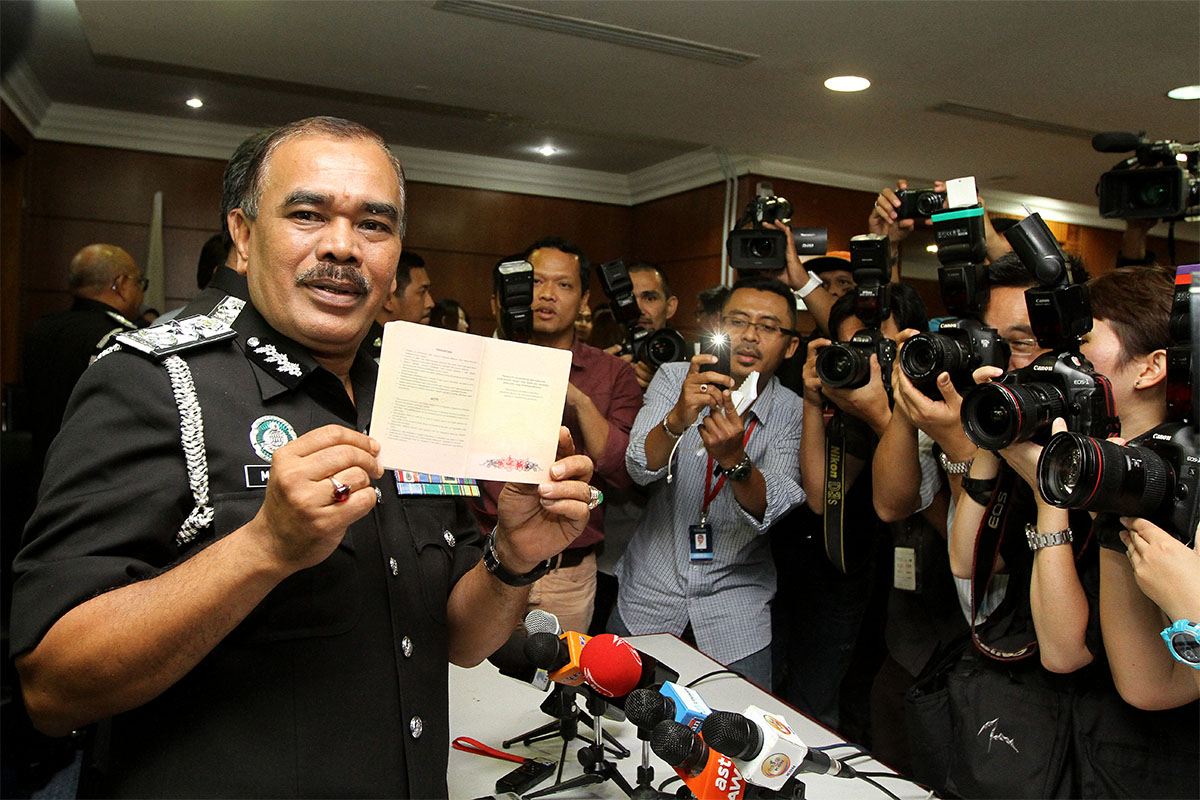KUALA LUMPUR, Dec 10 — Putrajaya’s unprecedented decision to revoke the passports of two Malaysians for relatively small infringements not yet proven in court is disproportionate and raises concerns about the legal process and thinking behind the withdrawal, according to lawyers.
The affected men, a sex blogger and a student activist, are both abroad and the decision leaves them stranded at the goodwill of their host nations unless local Malaysian embassies grant them temporary papers for travel home. While still citizens of Malaysia, they are now effectively undocumented migrants.
The action was unexpected, severe and plays to widespread fears of an increasingly conservative state. On Monday, the head of Malaysia’s immigration authority presented the decision as a straightforward consequence of events, of inviolable lines crossed.
According to Datuk Mustafa Ibrahim, the director-general of the Immigration Department, revocation was necessary “to serve as a warning to those who insult the courts, the rulers and Islam”.
Human rights lawyer Fadiah Nadwa Fikri likened Putrajaya’s actions to an “act of revenge” that was also “disproportionate” at the same time.
“What the government just did is arbitrary and oppressive as what Ali and Alvin did is not in any way a threat to national security,” she added, referring to activist Ali Abd Jalil and blogger Alvin Tan.
As if to confirm the prevailing sentiment in government, one Cabinet minister reacted to news of Sweden recognising the activist, Ali, as an asylum seeker with a “good riddance” retort.
Ali had fallen foul of laws that protect royalty from insults and spent nearly three weeks in prison while in remand. His case even caught the attention of global watchdog Amnesty International, which recognised him as a “prisoner of conscience”.
While sex blogger Alvin Tan’s case may be less compelling given his string of self indulgent and socially offensive stunts, the offences he is charged with are relatively minor. Tan, who is deemed to have insulted Islam, is now in the US and hoping to find asylum there.
Both fled the country this year instead of facing prosecution here.

Civil rights lawyer Eric Paulsen said the authorities are paying undue attention to the remarks made by the two, which he described as mere Facebook insults or petty criticism.
“Thousands of persons are making these comments all the time. They can’t be revoking the passports of every single person,” the Lawyers for Liberty (LFL) executive director told Malay Mail Online.
Depriving someone of a passport should be limited to serious offences such as terrorism and travelling to Syria to join the militant group Islamic State (IS), Paulsen said.
Last year Canada did just that, saying it will revoke passports of those leaving to join terror group, IS. In Malaysia’s case, the reasons cited are country-specific and aimed at protecting key local institutions.
In a modern democracy, the documents should be issued to citizens as a matter of course unless there are exceptional reasons, Paulsen said after duly noting that passports are issued in the name of the Yang di-Pertuan Agong and by the home minister as a matter of discretion.
Another civil liberties lawyer, Nizam Bashir, said that Malaysian legislation — both the Passports Act 1966 and the Immigration Act 1959 (1963) — do not expressly provide for passports to be revoked but added that a US legal precedent may make it possible. In the US case, the necessary grounds for revocation was “national security and foreign policy”.
While Malaysia’s head of immigration also said Tan and Ali may use emergency travel documents issued by Malaysia’s consular services abroad to travel home, the matter seemed to only be moot.
Paulsen described this residual option as a “red herring”.
“It’s unrealistic for them to come back because they will be arrested. They fled Malaysia because they are persecuted,” he said.
Nizam said the duo could seek judicial review of the government’s decision to revoke their passports, citing the Article 5 of the Constitution that guarantees the right to life and liberty and also includes the right to travel abroad.

“Consequently, no person can be deprived of such a right except according to a procedure established by law,” Nizam said, saying that Tan and Ali may complain that their rights were violated if a legal procedure was not followed.
Paulsen also cited Article 5 and Article 9 — which prohibits banishment overseas — as constitutional provisions that Tan and Ali may rely on.
Paulsen noted, however, the challenge that the duo would face as the courts have in the past declined to hear cases where the applicants are not present in Malaysia.
When contacted by Malay Mail Online, both the US and Swedish embassies declined to comment.
“As a matter of policy, we do not comment on issues regarding reported requests for asylum,” the US Embassy in Kuala Lumpur told Malay Mail Online.
The Swedish Embassy and the Swedish government cannot comment on the legal process for an asylum application, the former told Malay Mail Online yesterday, adding that the independent body Swedish Migration Board is the sole authority which decides on asylum cases.



















